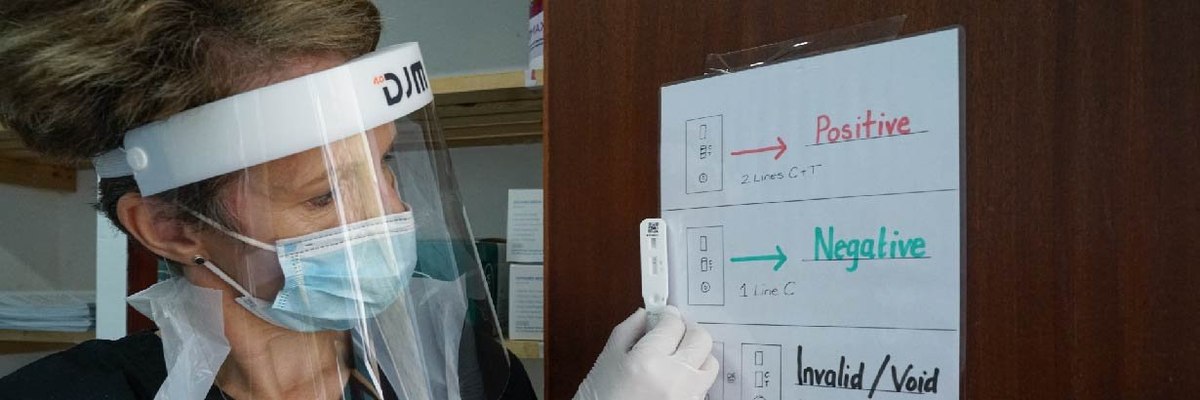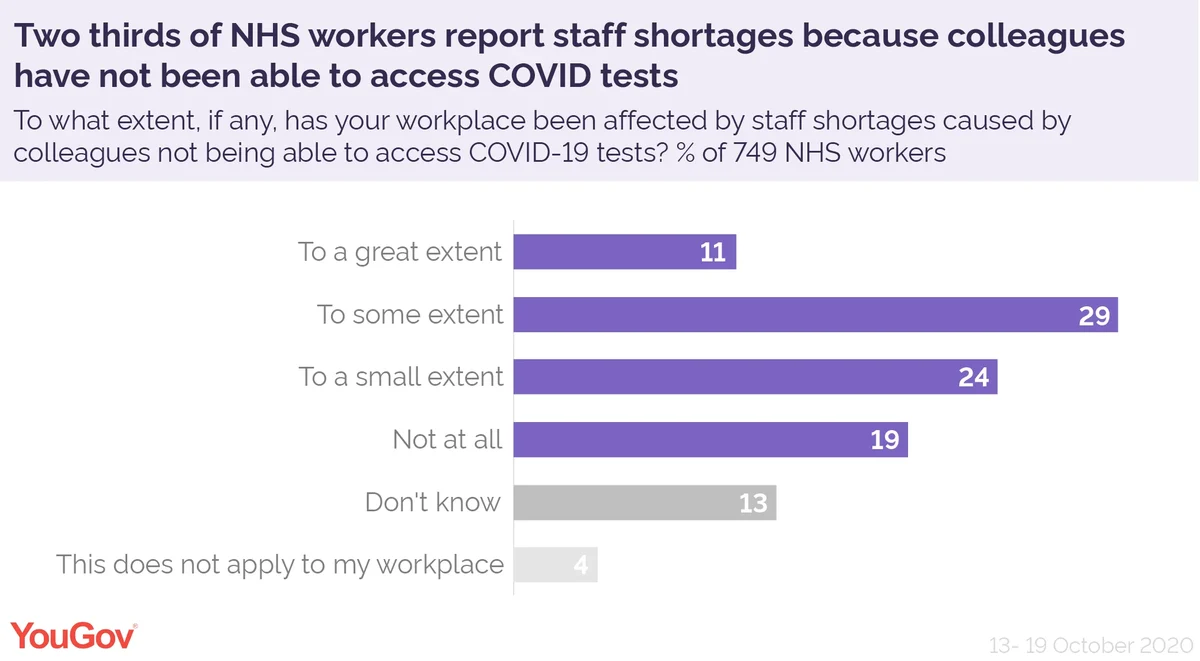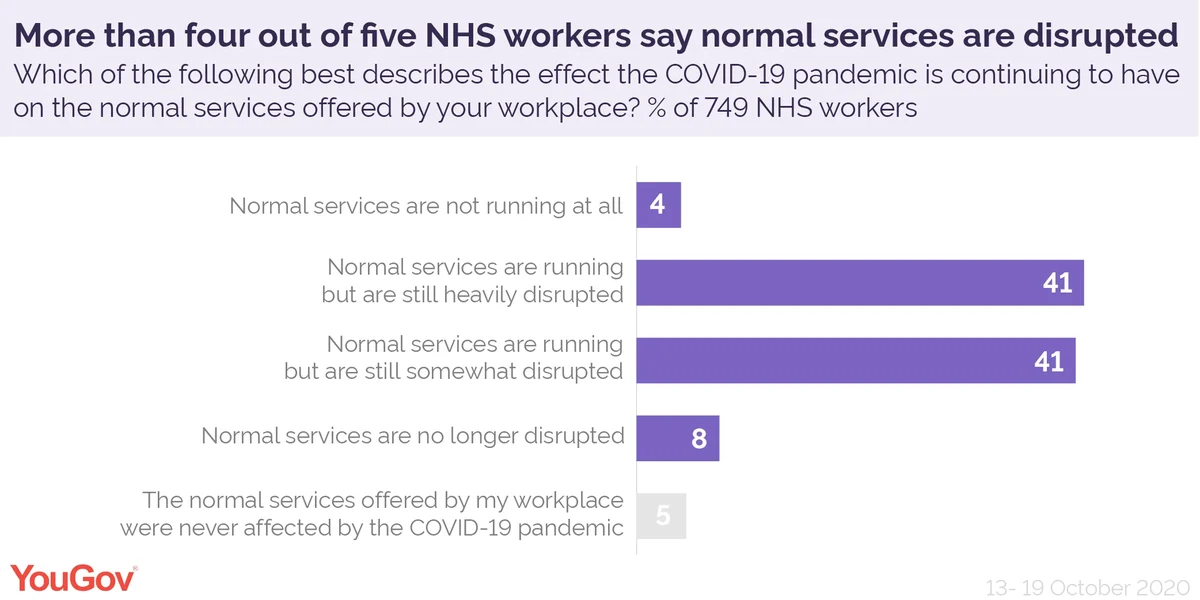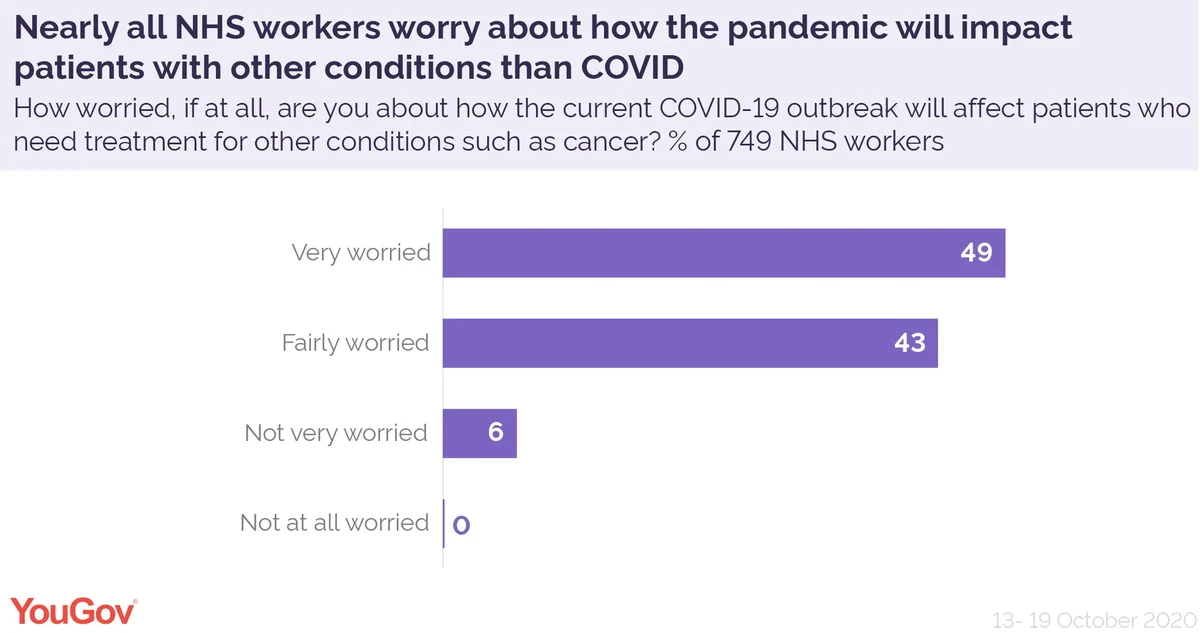
Two in three NHS workers say lack of COVID tests have caused staff shortages
Nearly nine out of ten also report normal services being disrupted and an even higher proportion are anxious about the impact on non-COVID patients
The latest YouGov polling of NHS workers – undertaken before the second national lockdown was announced – finds that nearly two thirds (64%) say their workplace has been affected by staff shortages because of lacking access to coronavirus tests.
The figures include one in nine (11%) who report being affected to a great extent, one in three to some extent (29%) and a quarter to a small extent (24%). One in five (19%) have not experienced any shortages.

Nearly half (47%) of NHS employees who work with admitted patients also say that access to COVID tests has delayed the discharge of patients. This comprises 7% who report it impacting to a great extent, a quarter (26%) to some and one in seven (14%) to a small extent. Just under a quarter (23%) say there’s not been any delay to discharges, while three in ten are unsure (30%).
The data also shows that about a quarter of NHS workers (23%) have requested a coronavirus test. Of these, most say it was either very (43%) or fairly (36%) easy to get one but about a fifth said it was either very (8%) or fairly (11%) hard to access a test.
More than four out of five report disruption to normal services
Most NHS workers (86%) say the normal services their workplace offers are currently disrupted. Four out of five say they’re either somewhat (41%) or heavily hampered (41%), while another 4% say they’re not running at all.

Only a small proportion of NHS workers say the services their workplace offers haven’t been affected (5%) or are no longer disrupted (8%) by the pandemic.
The ongoing coronavirus outbreak also contributes to heightened anxiety about patients with other conditions such as cancer. Half of NHS workers (49%) say they’re very worried about how the current COVID outbreak will impact these patients, while another two in five (43%) are fairly worried.
Only 6% say they’re not very worried while the NHS workers who are not at all worried make up less than 1%.
